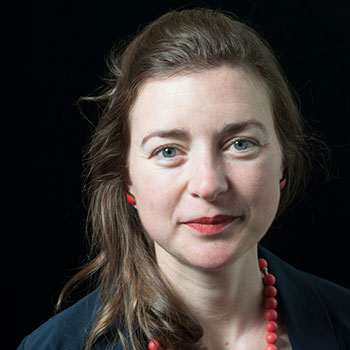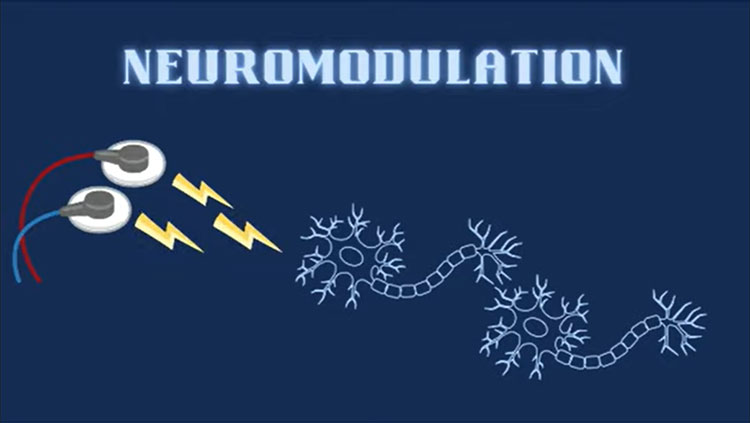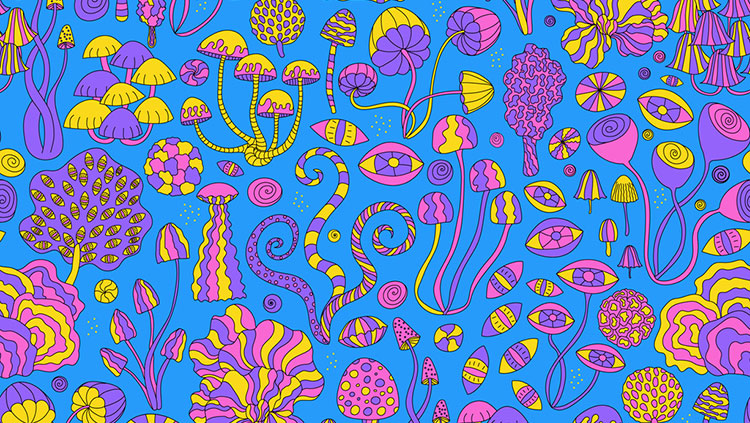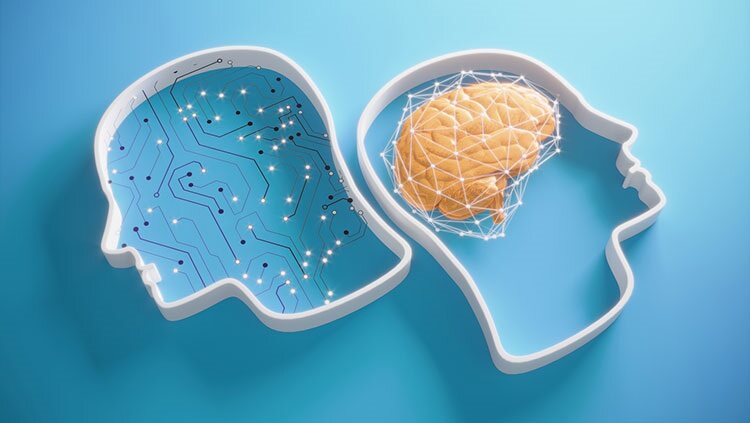How the Placebo Effect Went Mainstream
- Published20 Dec 2023
- Author Charlotte Stoddart
- Source Knowable Magazine
Sloppy by today’s standards, and maybe even back when it was published in 1955, Henry Beecher’s paper paved the way for sounder drug trials and pushed scientists to better understand how we process pain (Season 3, Episode 3 of the Knowable Magazine podcast).
Hyperlinks to scientists and papers are included in the transcript.
CONTENT PROVIDED BY
Knowable Magazine is an independent journalistic endeavor from Annual Reviews.
Transcript
Charlotte Stoddart: Can a sugar pill make you feel better? What about the rituals surrounding a visit to the doctor? Can the care of a doctor or your trust in them reduce the amount of pain you feel?
I’m Charlotte Stoddart and this is Knowable. This episode is all about the placebo effect. We’re going to look in detail at one key paper to learn how the placebo effect has been used in medicine and how it’s been understood and misunderstood. The paper is called “The Powerful Placebo.” It was written by Henry Beecher and published in JAMA, the Journal of the American Medical Association, in 1955. I chose this paper because it’s often referred to as a classic, and it’s still one of the most frequently cited papers on the placebo effect. I’ve enlisted the help of Ted Kaptchuk, who knows the paper well.
Ted Kaptchuk: I enjoyed rereading it, actually. It’s a remarkable paper. I’ve read it probably 15 times in my life.
Charlotte Stoddart: Ted is director of the Program in Placebo Studies at the Beth Israel Deaconess Medical Center in Boston and a professor of medicine at Harvard Medical School, where Henry Beecher also held a professorship. Beecher also worked at Massachusetts General Hospital.
Ted Kaptchuk: Yeah, he was in the Department of Anesthesiology at Mass General Hospital. I think it’s great. I loved being around where he was around. I’ve actually interviewed all his students. I know all the people he worked with.
Charlotte Stoddart: Beecher began his medical training at Harvard in 1928 and spent most of his career there.
Ted Kaptchuk: He always was well dressed: bow tie, a little flamboyant, that’s what I’m told. And very smart, and liked to party with his postdocs, younger students, all the time, and people admired him.
Charlotte Stoddart: During the Second World War, Beecher served in the US Army, and there’s a story about how that experience got him interested in the placebo effect. It goes like this: Beecher was working at a military hospital. One day, a badly injured soldier needed surgery, but the hospital had run out of morphine. So Beecher injected the soldier with saline solution instead. The soldier relaxed and Beecher carried out the operation without any real anesthetic. This, so the story goes, is when Beecher realized the power of the mind over the body. There are several different versions of this story, but Ted says it’s likely some version of it is true.
Ted Kaptchuk: So there is a little myth around it, but those are the stories he said, and I think I’m OK to say that his best colleagues would say he may have embellished it a little bit. I’m flamboyant too, that’s why I like Beecher.
Charlotte Stoddart: And so how did you come to research the placebo effect?
Ted Kaptchuk: I was hired by Harvard University to research alternate medicine, primarily Chinese medicine. And I would study with Fred Mosteller, who was Beecher’s statistician. And then one day he said, “Your job is to help find out whether any of these alternate therapies is more than a placebo.” And I said, “Fred, can you tell me what a placebo is?” And he said, “Yeah, it’s the effect of an inert substance.” And I went, “Holy God, I’m in the wrong field. ‘The effect of inert substance’ is an oxymoron.” This great giant was saying something that was an oxymoron. It was crazy. And so I switched careers because I thought there’d be more interesting things to discover with placebo.
Charlotte Stoddart: And is that still the definition of placebo?
Ted Kaptchuk: Every definition is very difficult. It’s a trap. The effect of inert substance, people will say that, but it’s not a definition. It’s a nonsense statement. And it does describe something. You’re giving something that’s fake to someone, and it seems to have an effect. Yeah.
Charlotte Stoddart: The question of what exactly a placebo is and how it can affect health is ongoing and has a long history. For hundreds of years before Beecher’s paper, sugar pills and other medicines with no active ingredient were given to patients. Sometimes patients felt better, and this was usually put down to the power of the imagination. If the patient trusted the pill giver and believed in their power to heal, it didn’t much matter if the pill was no more than sugar.
In the 20th century, as medicine was professionalized and turned from a craft to a science, sugar pills fell out of favor. They were dismissed as useless, or worse, deceptive and unethical. And they became known as placebos or dummies. People who prescribed them were often called quacks.
By the time Beecher was writing, a new use had been found for placebos, as controls for testing the effectiveness of proper drugs in clinical trials. As Beecher puts it at the top of his paper, placebos were used “to distinguish pharmacological effects from the effects of suggestion.” Beecher’s main aim in writing the 1955 paper was to raise awareness of the placebo effect in drug trials.
Ted Kaptchuk: Well, it’s one of the early proclamations of the importance of placebo and he’s very insightful. He says things that people still haven’t gotten to understand.
Charlotte Stoddart: Just as with his battlefield surgery story, Beecher may have embellished or glossed over details for rhetorical effect.
Ted Kaptchuk: There’s a lot of problems with this paper. I mean he’s a showman. He really performed, and he always made things a little bit more elaborate than they were, or a little truer than they were. All his colleagues told me that, and his students told me that. But he really puts the question of placebo effects in front of the medical community. But actually, more important, he was one of the proponents of the placebo-controlled randomized trial and he was fighting to get that established. On some level, it’s a propaganda piece.
Charlotte Stoddart: Fascinating. So in simple terms, what is it that Beecher is trying to do in this paper?
Ted Kaptchuk: Bottom line, he wants to say, there’s something called a powerful placebo. Most doctors really didn’t even know about it. Most doctors didn’t even know what it could possibly be. What is he talking about? And he does that because he believes the placebo controlled randomized controlled trial, is critical for the next stage of drug development. He’s arguing for a methodology here.
Charlotte Stoddart: Randomized controlled trials were developed as a way to measure the effectiveness of new drugs or treatments without bias. The people taking part in the trial are randomly put into one of two groups. One group receives the drug that’s being tested. The other — the control group — receives a placebo. Importantly, neither the doctors nor the patients know which group they are in. If the new drug is more effective than the placebo at making people feel better, then it passes the trial.
Ted Kaptchuk: Can I tell you what’s really interesting about this? This is not just about placebo controls. This is about changing what you think drugs and medicine and healing’s about. Before people like Beecher, how did you know a drug worked? You went to Mass General Hospital, you found a man, because they were only men, with bow ties, white shirt, a little bit of gray hair. And they said, “I have a new drug for a certain condition of a kidney. Can you test it?” And he would give it to the next 100 patients and then he would say, “Oh, it really worked.” There’s no control.
And Beecher was part of the people that said, “We have to have a control. We have to do this scientifically. Observation’s not enough.” Doctors no longer think medicines are good because they help patients. It’s medicines are good because they’re more than placebo effect. It’s the whether or not the methodology is correct, meaning it’s more than the work of the devil. It’s a whole reconfiguration of how we should think about medicine.
Charlotte Stoddart: And what Beecher’s saying in this paper is that the placebo that’s given, the kind of control, is not inactive. It’s not having no effect. He’s saying there’s an important placebo effect and he tries for the first time to quantify that placebo effect.
Ted Kaptchuk: Absolutely. Absolutely. And yeah, there’s an element of, “I got to make doctors believe we have to get rid of this demon.” That’s the rhetorical line of the article, I believe.
Charlotte Stoddart: You’re talking about needing to get rid of the devil, which I think you mean the placebo effect. So the placebo effect is seen as a kind of nuisance, something that we don’t want?
Ted Kaptchuk: Oh, absolutely. In this article, the placebo effect, it’s the devil because we have to have randomized control trials to make sure our drugs are not this devil. The way the placebo gets healing is inappropriate. This is an earthshaking change in how medicine is considered, changing it from a craft to a science and making it much more closer to an experiment, right? Randomized controlled trial as opposed to observation. It’s a major transition in history and Beecher is critical.
Charlotte Stoddart: Right. So today we take for granted that randomized controlled trials are the way to test drugs, but at this time in the 1950s, that was debated and being figured out.
Ted Kaptchuk: It was being figured out, debated, it was opposition, and people like Beecher were really critical for that development.
Charlotte Stoddart: So Beecher’s classic paper was influential in the introduction of randomized controlled trials, a rigorous scientific approach to testing drugs, but the statistics in Beecher’s paper were not rigorous. In fact, Ted says that the analysis in the paper is so sloppy that Beecher’s colleagues didn’t want to put their name to it. Beecher looked at 15 studies that involved giving patients placebos for things like headaches, coughs, seasickness, post-operative pain and anxiety. He claims that in 35 percent of cases, the placebos were effective, meaning that they made patients feel better in some way.
Ted Kaptchuk: The headline finding is, “Wow, this effect is about 35 percent.” The magnitude of placebo effects is 35 percent. That’s the bottom line that really electrified people. He was going for a high number and the way he did his statistics was about that. I have to say the question is, what does that 35 percent mean? Does that mean that about 100 percent got 35 percent improvement? Or does it mean there’s a lot of variability? There’s a lot of variability hidden in that number. And he was not interested in that variability, he wanted a clear number.
His closest colleague was Louis Lasagna, who was one of my mentors. And I asked Louis Lasagna, “So Louis, why weren’t you a coauthor of that paper?” And he looked at me and said, “Henry” — he called him Henry — “Henry is a little bit of a dramatist. Ted, read my paper that was published a few months earlier than his paper.” And it was about the question of natural history. Some people just get better by themselves. Or there’s to something called regression to the mean where numbers tend to go down anyways, spontaneous remission, and Beecher never mentions once, in this paper, spontaneous remission. He deliberately did that.
He’d read Lasagna’s paper. In those trials, he shows how many of those people would’ve gotten better anyways. He doesn’t tell you. And then I asked Fred Mosteller, his statistician for his whole career, and “Fred,” I said, “Fred, why weren’t you an author? It’s a mathematical paper, how could you not have been an author?” He said, “I didn’t want to be an author.” And there’s something going on. And when you look at the paper very carefully, Beecher wants to make the numbers look really good.
Charlotte Stoddart: Interesting. I hadn’t realized that there were people questioning his finding at the time, because I know that in the 1990s …
Ted Kaptchuk: That’s right.
Charlotte Stoddart: ... two German scientists reexamined the studies in Beecher’s paper.
Ted Kaptchuk: They were a little harsh, and I actually wanted to redo the numbers, but it’s really hard to aggregate these different trials. Some of them are laboratory and some are not. You know what? He made his point. He won. He got something done. And there had been criticism, but very mild.
Charlotte Stoddart: The two German scientists who looked again at the studies in Beecher’s paper, they published and they said they found no evidence of the placebo effect in any of the studies that Beecher writes about.
Ted Kaptchuk: They were not great studies by 1990s standard, or 2000 studies, but I’m sure that Beecher exaggerated deliberately to make this point have power.
Charlotte Stoddart: Given that people do sometimes just get better over time and…
Ted Kaptchuk: A lot of time.
Charlotte Stoddart: Right. And that might be attributed to the placebo effect, but in fact just be people getting better over time. And there have been papers published more recently questioning the placebo effect. What is the consensus these days? Is it that the placebo effect is real, or not?
Ted Kaptchuk: You know, I’ve done 30 years of work in this field. Any consensus is there’s too many confusing pieces floating around, because this is actually the garbage heap of medicine. So people didn’t do it well. So I would say that there is lots of evidence that you can say, there’s certainly placebo responses in the placebo arm of a randomized controlled trial.
People say there are placebo effects in everything. God forbid — this is nonsense. There’s no … placebo effect in malaria. There’s no … effect of lowering cholesterol with placebos. Tumors don’t shrink from placebos. Mostly, if you got real hard-core pathophysiology, it doesn’t, placebo doesn’t do anything. If you have amplification of symptom, what Beecher calls sensation processing or pain processing, placebos work really good. You could criticize, but there’s something going on here.
Charlotte Stoddart: Beecher’s paper focuses on placebos used in drug trials, but he also acknowledges that placebos are sometimes given by doctors as therapy for, he talks about mental illness and he also talks about doctors who are dealing with “neurotic” patients, he calls them.
Ted Kaptchuk: Yeah, that’s what people would say, yeah, at that time, yeah. He’s accurate. There were placebos in every hospital at Harvard in 1955, and every doctor said they had no effect. They just were cranky people were making it up in their head. And the only reason that placebo started to be not used is because informed consent was developed — asking people, transparency, respect the person — only exists from 1960 on.
Charlotte Stoddart: And was it then considered unethical to give patients a sugar-pill placebo?
Ted Kaptchuk: By 1970, it was considered unethical to deceive patients. Giving placebos is never a problem if you told them, but any form of deception was.
Charlotte Stoddart: And what do we think these days about giving placebos as treatment, given that there’s evidence that placebos are having some kind of effect in the way that the brain is processing pain?
Ted Kaptchuk: I’m going to be blunt. The ethics now are, if you deceive a person and give them a pill that in some way infers or explicitly says it’s a drug that’s going to do something, you’re committing a blatant transgression of modern biomedical ethics. You know about open-label honest placebos, I assume, because you’re obviously…
Charlotte Stoddart: So I know that research has been done to see if the placebo effect is still there if you tell the patient that they’re receiving it.
Ted Kaptchuk: Yeah, I’ve done 15 of those trials, and that’s what I’ve been doing for 10 years, 15 years. If you inform a person that they are getting a placebo, everyone told me that they wouldn’t get a placebo effect. And I said, “Can someone show me the evidence for this?” Even Henry Beecher says that. And I said, “How do you know?” Because they all thought it was this conscious, mental thing. Anyways, for a lot of reasons I said, “It has to be tested. This is an assumption.” And we tested it in 2010, and it turned out that if you give a placebo to people, in that case it was irritable bowel syndrome, they got significantly better than a no-treatment control. And that’s been replicated in various kinds of pain disorders and low back pain, migraine headaches.
Charlotte Stoddart: And these patients knew that they were receiving a placebo?
Ted Kaptchuk: They had to sign on the ethics form, “I know I will get a placebo or nothing.”
Charlotte Stoddart: So what do you think is going on there, then?
Ted Kaptchuk: I personally will say I don’t know, but then I’ll say, but I have a hypothesis and a model. And I don’t think you can expect yourself to get better, hope yourself to get better. And what I think was happening, it’s the nervous system amplifying the signals of discomfort. It’s hyperactivity in the brain, I’m making it simple. And I think that what happens when you go into a healing situation is that in some people some of the times, those signals turn down because of all the things, the incredible soup that makes up the Wagnerian opera of going to a doctor, failure after failure, and we give you something that’s totally counterintuitive, we’re giving you nothing, but you know what? People take it because they’re absolutely desperate, they don’t believe it’ll work and it helps some people some of the time. I think that we have good evidence for that. That’s very cutting edge. This is nothing to do with Beecher. Beecher would’ve been very surprised.
Charlotte Stoddart: Beecher writes about what he calls placebo reactors, so people who tend to react in a positive way to placebos. Does modern research support this idea that some people are more likely to feel better about …
Ted Kaptchuk: If I knew who was going to respond to a placebo, I’d be a very rich person. We don’t know who will respond. I think it’s even more dramatic. It’s we don’t know when they’ll respond. And Beecher is brilliant in this article, he’s so smart. He says, “This is a state, not a trait.” And he cites these early experiments and say, “We gave people placebos multiple times and sometimes it didn’t work for them, sometimes it did.” And he said, “This has to be a state, not a trait.” The complexity of what we put under the umbrella of placebo effects is still beyond what we can comprehend, in my personal opinion. We have models that we use to generate hypotheses and we keep going. That it exists is, I think, incontrovertible. There’s something going on here.
Charlotte Stoddart: When Beecher says that the placebo effect, it’s a state, not a trait, does he mean that it’s not …
Ted Kaptchuk: It’s not exact words but he’s saying that people getting it multiple times and not always reacting.
Charlotte Stoddart: Right. So he means that it’s not something that’s fixed, maybe genetic, about a person that means they react? It’s like a state, it’s to do with the context, the environment in which they’re taking the placebo?
Ted Kaptchuk: He doesn’t amplify it. He just says it in passing.
Charlotte Stoddart: So, what’s going on? Recent studies by neuroscientists hint at how the placebo effect may work in the brain. This is new research, but fascinatingly, Ted thinks that Beecher has an inkling of it when he wrote his paper in 1955.
Ted Kaptchuk: He talks about subjective symptoms as being the primary issue and he talks about the processing of sensations. I haven’t seen anyone, until very recently, last six years, say, “Placebos are the processing of sensations.” The basis of some of the cutting-edge research, cutting-edge theorization around what is the placebo effect, is something called Bayesian brain, prediction coding, it’s about processing of sensations. How do you know what you’re feeling? How do you know what you’re seeing? And I was blown away by him saying that.
Charlotte Stoddart: That’s fascinating. Can I just check that I understand what we’re talking about?
Ted Kaptchuk: Go ahead. Good.
Charlotte Stoddart: Are you talking about the way that the brain is processing something like pain?
Ted Kaptchuk: Yes, exactly what it is. Beecher actually talks about this. The placebo doesn’t change pathophysiology. That’s what Beecher’s saying. But he’s saying it’s about pain processing. It’s not changing the underlying pathophysiology.
Charlotte Stoddart: What do you mean by pathophysiology?
Ted Kaptchuk: It’s not shrinking a tumor, it’s not getting rid of inflamed nerves, reducing inflammation. It is changing what’s going on in the brain about how the brain turns up the volume or turns down the volume as part of its job. The brain is not a passive organ; it actually interacts with sensations and reformulates them. And chronic pain is a false alarm. The brain is predicting pain, when in fact there’s nothing coming up from the bottom. But Beecher doesn’t describe that in full, but I was impressed he talks about it, even, no one was talking about that.
Charlotte Stoddart: Because he does call in this paper for further research into the mechanism. He seems very interested in what the mechanism might be for the placebo effect.
Ted Kaptchuk: He was a card-carrying scientist. Every card-carrying scientist needs to say, “We need to understand mechanism.” That’s what biomedicine is about. And he really wanted to understand it. He mentions expectation and says that a person has to believe they’re on a drug. And we know that’s not necessarily true right now. I think he was one of the key people who formulated that idea that placebos come from expectation.
Charlotte Stoddart: Is that what we think today?
Ted Kaptchuk: Most of my colleagues do. I don’t.
Charlotte Stoddart: What do you think then?
Ted Kaptchuk: I think we’re dealing with pain processing, and it’s a very complex phenomena that’s really not so simple as, I hate this, something called a drug in your brain called expectation and that changes the pain. That’s just too simplistic for me. But most of my colleagues in placebo world say, it’s expectation for sure. If anyone tells you they know what the placebo does, exactly what it does, they don’t know what they’re talking about. It’s complicated.
Charlotte Stoddart: Do we have neuroscientific research that sheds some light on what’s happening in the brain in the placebo effect?
Ted Kaptchuk: Now, Beecher didn’t have access to that kind of data, but in 1978 in the Lancet, a paper was published showing that if you block the opioid receptors in the brain, you also stopped the placebo effect, meaning that the endogenous opioids in the brain — the endorphins — were probably mediating placebo effects. And since then, we’ve gotten cannabinoids, dopamine, other neurotransmitters. More important, we’ve got neuroimaging where we can actually see specific, quantifiable and relevant areas of the brain releasing those neurotransmitters in real time when people get better from placebo. So we have a neurobiology for sure.
Charlotte Stoddart: I bet Beecher would’ve loved to see that.
Ted Kaptchuk: He would’ve loved that. Yeah, he would’ve, and it’s startling that we have that neurobiology.
Charlotte Stoddart: To finish off, how would you sum up how our thinking of the placebo effect has changed from when Beecher wrote this, up to today?
Ted Kaptchuk: Well, we know much more. We have interesting data on the neurobiology, on the genetics. We’ve made a lot of progress, but you want to know my ultimate opinion? The questions Beecher’s dealing with, we’re still arguing, trying to figure out the same things he was struggling with. Could you believe that? This was 1955.
Charlotte Stoddart: Beecher’s paper wouldn’t get published today. The statistics are too sloppy. But in other ways, Beecher was ahead of his time. He seems to have anticipated recent neuroscience studies, which suggest that the placebo effect acts on the brain by turning up or down our perception of pain. He was also an advocate for modern medical practices, including randomized controlled drug trials and medical ethics — both still pillars of medicine today. With such a legacy and still so many unresolved questions surrounding the placebo effect, Beecher’s paper is likely to remain a classic for decades to come.
Thank you for listening to this episode of the Knowable Magazine podcast. If you want to dig more into the science, you’ll find a copy of the transcript, along with links to related papers at knowablemagazine.org/podcast. If you enjoyed listening to this episode, we hope you’ll help others find us by sharing it with your friends or leaving us a review.
The next episode comes out in two weeks and looks at Einstein’s concerns that quantum described a spooky world, and the experiments that set out to prove him wrong.
This podcast is produced by Knowable Magazine, a journalistic publication that seeks to make scientific knowledge accessible to all. Knowable is published by Annual Reviews, a nonprofit publisher dedicated to synthesizing and integrating knowledge for the progress of science and the benefit of society. This episode was written and produced by me, Charlotte Stoddart, with editorial contributions from Eva Emerson and Rosie Mestel. Thank you to my cohost, Adam Levy, and a special thank-you to Ted Kaptchuk for sharing his recollections and research findings.
Also In Therapies
Trending
Popular articles on BrainFacts.org



















